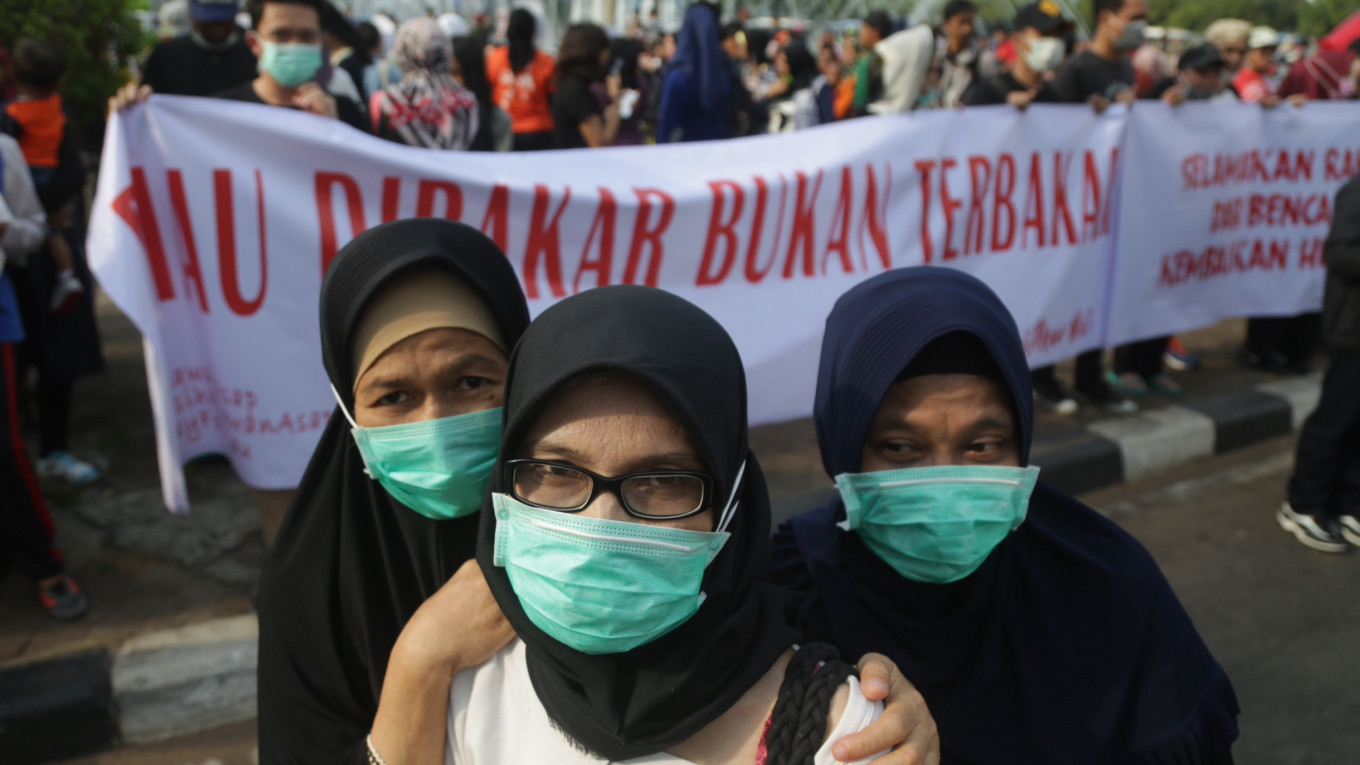Popular Reads
Top Results
Can't find what you're looking for?
View all search resultsPopular Reads
Top Results
Can't find what you're looking for?
View all search resultsLiving near busy roads stunts children's lungs, increases cancer risk
A study shows that living within 50 meters of a busy road can increase the risk of lung cancer by 10 percent and a stunt lung growth in children by 3 to 14 percent.
Change text size
Gift Premium Articles
to Anyone
R
esiding in a quiet suburb is a luxury not everyone can afford, especially in jam-packed Jakarta. With a population of 10 million people, Jakarta does not provide many options when it comes to living space.
A recent study shows that residing in a busy area may pose medical threats. An analysis by King’s College London has shown that living near a busy road can stunt children’s lung growth and increase the risk of lung cancer, The Guardian reported.
The analysis compared 13 different health conditions including heart disease, stroke and bronchitis, across 13 cities in the UK and Poland.
The study shows that living within 50 meters of a busy road can increase the risk of lung cancer by 10 percent and a stunt lung growth in children by 3 to 14 percent.
The culprit is pollution, especially small particles known as PM2.5.
The World Health Organization (WHO) has set a limit on PM2.5, an annual mean of 10 micrograms per cubic meter (μg/m3) or a 24-hour mean of 25 μg/m3.
Jakarta has been ranked several times as the city with the worst air pollution in the world according to air quality monitoring software companies, surpassing notoriously polluted cities like Shanghai in China or Karachi in Pakistan.
In its 2017 report, Jakarta’s Silent Killer, Greenpeace presented data from the US Embassy in Jakarta showing that between January and September 2017, Central and South Jakarta had experienced only 14 days of “good” air quality while they experienced 34 days of “unhealthy” air.
The rest of the days were either “moderate” or “unhealthy for sensitive groups”. (gis)










